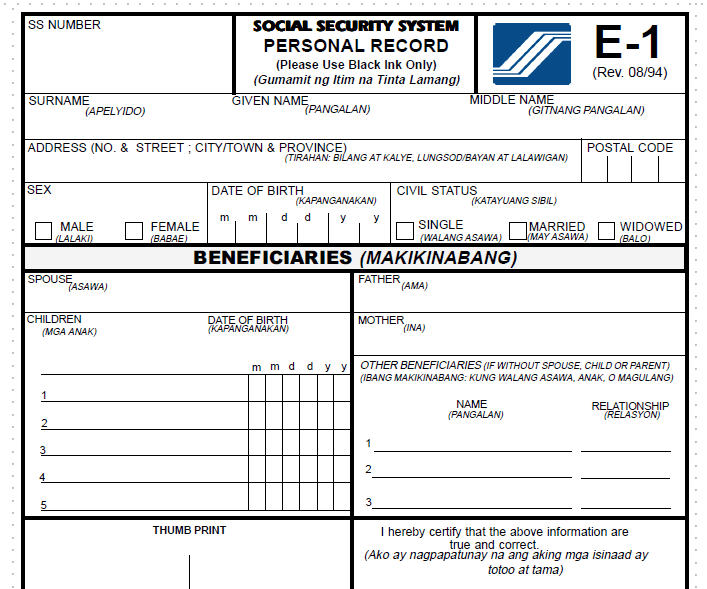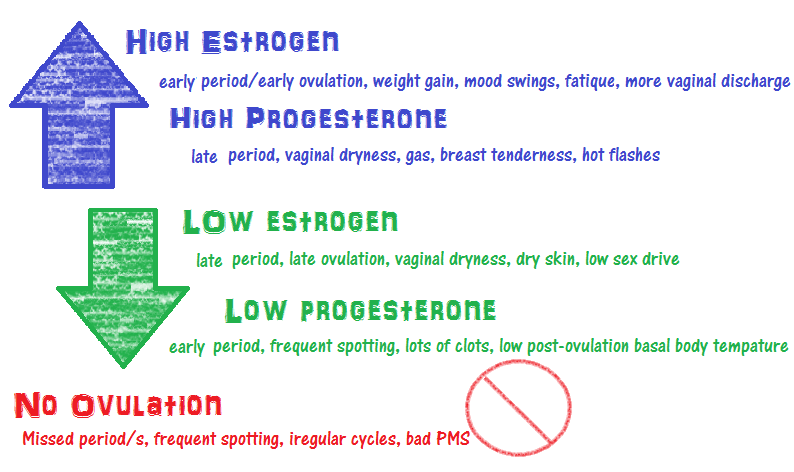I was a premature baby
Long-term health effects of premature birth
Premature birth is birth that happens too soon, before 37 weeks of pregnancy.
Babies born prematurely may have more health problems at birth and later in life than babies born later.
Premature babies can have long-term intellectual and developmental disabilities and problems with their lungs, brain, eyes and other organs.
Finding and treating health problems as early as possible can help premature babies lead, healthier lives.
How can premature birth affect a baby’s health?
Premature birth is birth that happens too soon, before 37 weeks of pregnancy. Babies born this early may have more health problems or need to stay in the hospital longer than babies born later. These premature babies may need special medical care in a newborn intensive care unit (also called NICU). Each year, about 1 in 10 babies in the United States is born prematurely.
Prematurity can cause problems for babies throughout their lives. The earlier a baby is born, the more likely she is to have health problems. Some of these problems may not show up for several years, even into adulthood. Finding and treating health problems as early as possible—and preventing premature birth when possible—can help babies lead longer, healthier lives.
How can premature birth affect a baby’s brain?
Premature birth can lead to long-term intellectual and developmental disabilities for babies. These are problems with how the brain works. They can cause a person to have trouble or delays in:
- Physical development
- Learning
- Communicating
- Taking care of himself
- Getting along with others
Some long-term conditions linked to premature birth include:
- Cerebral palsy (also called CP). This is a group of conditions that affects the parts of your brain the brain that control your muscles. This can cause problems with movement, posture (standing up straight) and balance.
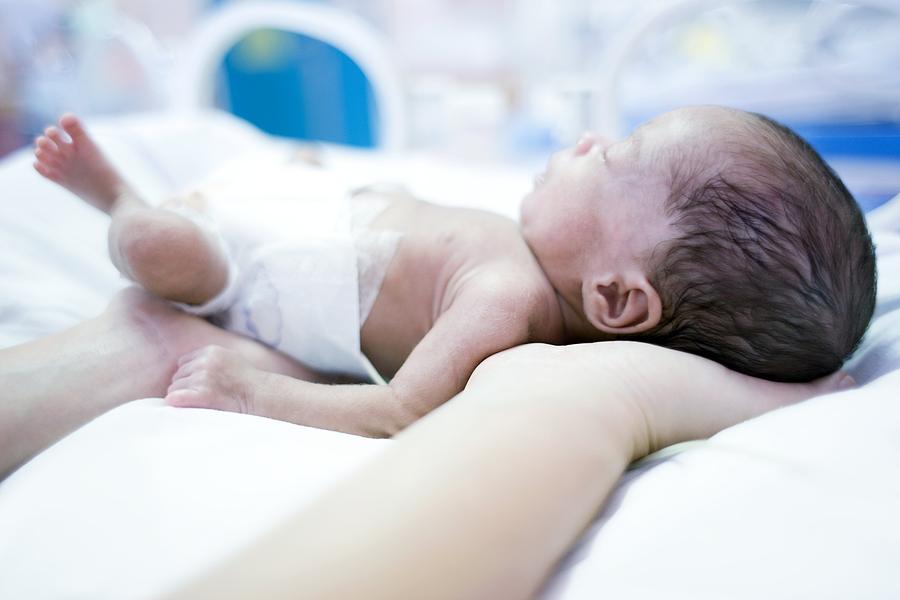
- Behavior problems. Some studies show that premature babies may be more likely to have attention deficit hyperactivity disorder (also called ADHD) than babies born on time. ADHD is a condition that makes it hard for a person to pay attention and control his behavior.
- Mental health conditions. Premature babies may be more likely to have anxiety or depression later in life. Depression is a medical condition in which strong feelings of sadness last for a long time and interfere with your daily life. It needs treatment to get better. Anxiety is when you feel worried or fearful and these feelings affect your daily life, like school work, jobs or relationships with others.
- Neurological disorders. These conditions affect the brain, spinal cord and nerves throughout the body.
How can premature birth affect a baby’s lungs?
Premature birth can cause a baby to have lung and breathing problems, including:
- Asthma.
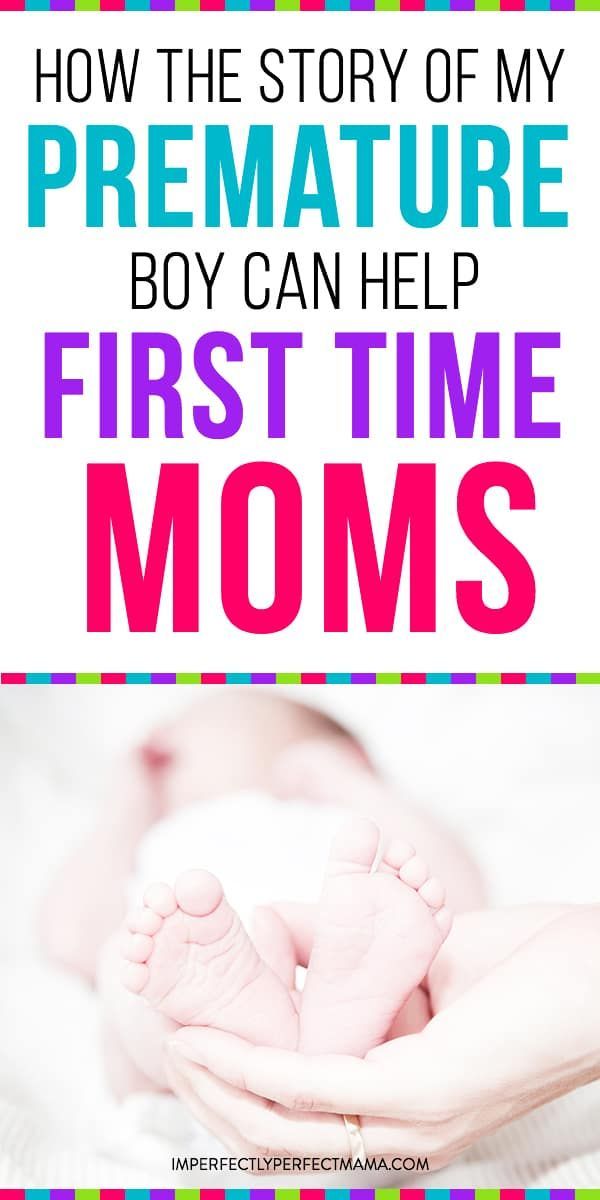 This is a health condition that affects the airways and can cause breathing problems.
This is a health condition that affects the airways and can cause breathing problems. - Bronchopulmonary dysplasia (also called BPD). This is a lung disease that can develop in premature babies as well as babies who have treatment with a breathing machine. BPD can cause swelling and scarring in the lungs. Babies with BPD are more likely to get lung infections like pneumonia. Over time, the lungs usually get better, but a premature baby may have asthma-like symptoms or long-term lung damage throughout his life.
What other long-term health problems can premature birth cause?
Premature birth can lead to these health problems:
- Dental problems. Premature babies may have delayed tooth growth, changes in tooth color or teeth that grow crooked or out of place as they get older.
- Hearing loss. Children born prematurely are more likely to have hearing loss than children born on time.

- Infections. Premature babies often have trouble fighting off germs because their immune systems are not fully developed. This means they can get infections more easily. Infections can still be a problem as your baby grows.
- Problems with the intestines. These problems may be caused by necrotizing entercolitis (also called NEC). This is a common but very serious disease that can affect a newborn baby’s intestines. Intestines are long tubes that are part of your digestive system. While most babies with NEC get better, some may have ongoing intestinal problems, like scarring or blockage in the intestine. Surgery may be needed to treat these problems. Some babies who’ve had surgery to remove part of the intestine may have trouble absorbing nutrients from food.
- Vision problems, like retinopathy of prematurity (also called ROP). This is an eye disease that affects many premature babies. ROP happens when a baby’s retinas don’t fully develop in the weeks after birth.
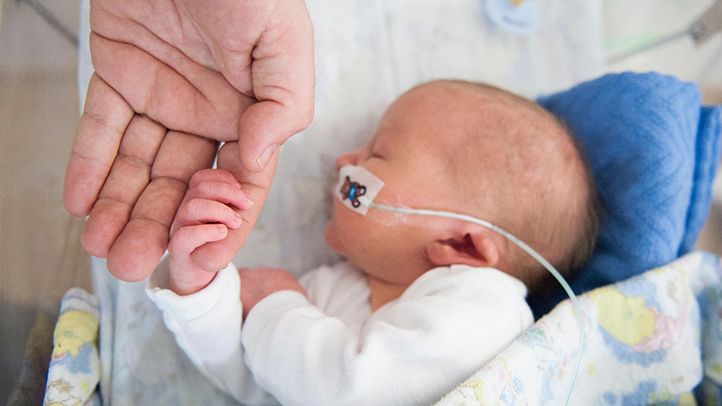 The retina is the nerve tissue that lines the back of the eye. ROP usually affects both eyes. Children born prematurely are more likely than children born on time to have vision problems.
The retina is the nerve tissue that lines the back of the eye. ROP usually affects both eyes. Children born prematurely are more likely than children born on time to have vision problems.
Last reviewed: October, 2019
Premature babies | March of Dimes
Premature babies may have more health problems than babies born later. These include problems with their brain, lungs, heart, eyes and other organs.
Some premature babies have to spend time in a hospital’s newborn intensive care unit (also called NICU) to get special medical care.
Premature birth can lead to long-term challenges for some babies, including intellectual and developmental disabilities.
After they leave the hospital, premature babies get regular checkups to monitor their health and development.
If you’re worried about your baby’s health or development at any time, tell your baby’s provider right away.
What is a premature baby?
A premature baby is one who is born too early, before 37 weeks of pregnancy. Each year, about 1 in 10 babies in the United States is born prematurely. Premature babies may not be fully developed at birth. They may have more health problems and may need to stay in the hospital longer than babies born later. Thanks to advances in medical care, even babies born very prematurely are more likely to survive today than ever before.
Each year, about 1 in 10 babies in the United States is born prematurely. Premature babies may not be fully developed at birth. They may have more health problems and may need to stay in the hospital longer than babies born later. Thanks to advances in medical care, even babies born very prematurely are more likely to survive today than ever before.
Your baby’s health care provider may use these terms to describe your baby’s birth:
- Late preterm: Your baby is born between 34 and 36 completed weeks of pregnancy.
- Moderately preterm: Your baby is born between 32 and 34 weeks of pregnancy.
- Very preterm: Your baby is born at less than 32 weeks of pregnancy.
- Extremely preterm: Your baby is born at or before 25 weeks of pregnancy.
Some health problems related to premature birth can last a lifetime. Other problems, like intellectual or developmental disabilities, can show up as your baby grows and later in childhood. These are problems with how the brain works that can cause a person to have trouble or delays in physical development, learning, communicating, taking care of himself or getting along with others.
These are problems with how the brain works that can cause a person to have trouble or delays in physical development, learning, communicating, taking care of himself or getting along with others.
The earlier in pregnancy a baby is born, the more likely he is to have health problems. Babies born before 34 weeks of pregnancy are mostly likely to have health problems, but babies born between 34 and 37 weeks of pregnancy are also at increased risk of having health problems related to premature birth. Some premature babies need to spend time in a hospital’s newborn intensive care unit (also called NICU). This is the nursery in a hospital where sick newborns get medical care. Premature babies stay in the NICU until their organs develop enough to stay alive without medical support. Some babies need NICU care for weeks or months until they can breathe on their own, eat by mouth and maintain their body temperature and body weight.
Do premature babies need special medical care?
Talk to your baby’s health care providers about any health conditions your baby has.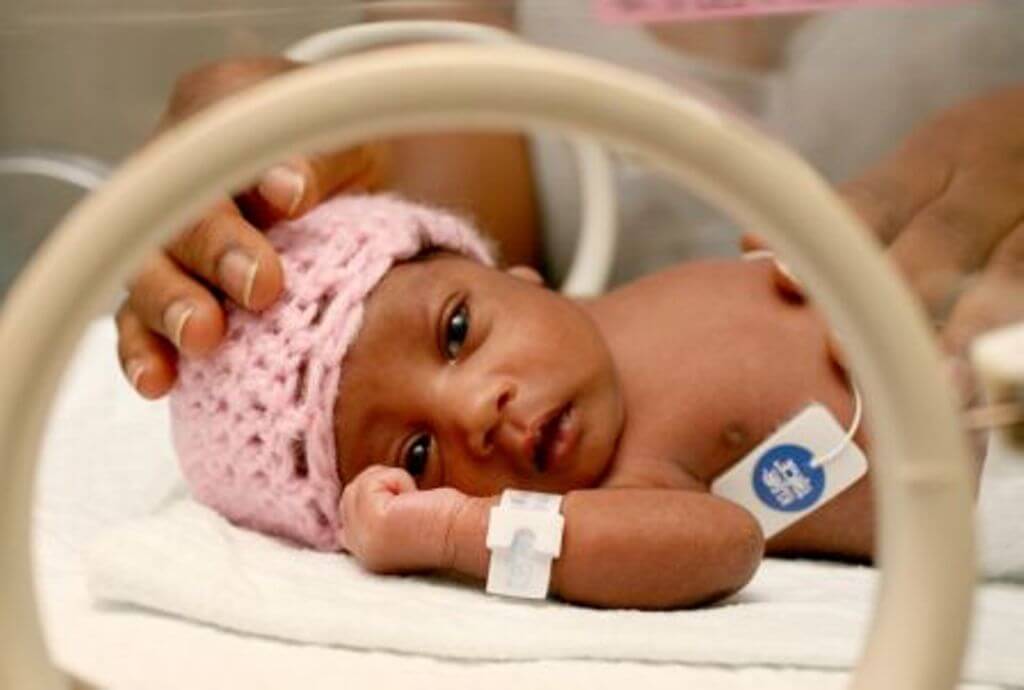 He may be healthy enough to go home soon after birth, or he may need to stay in the NICU for special care. Your baby can probably go home from the hospital when he:
He may be healthy enough to go home soon after birth, or he may need to stay in the NICU for special care. Your baby can probably go home from the hospital when he:
- Weighs at least 4 pounds
- Can keep warm on his own, without the help of an incubator. An incubator is a clear plastic bed that helps keep your baby warm.
- Can breastfeed or bottle-feed
- Gains weight steadily
- Can breathe on his own
Your baby may need special medical equipment, medicine or other treatment after he leaves the hospital. Your baby’s provider and the staff at the hospital can help you with these things and teach you how to take care of your baby at home. They may recommend that you bring your baby to a neonatologist for checkups after your baby leaves the hospital. A neonatologist is a doctor who specializes in caring for premature babies and children. Talk to your baby’s provider if you have any questions about your baby’s health or long-term effects of premature birth.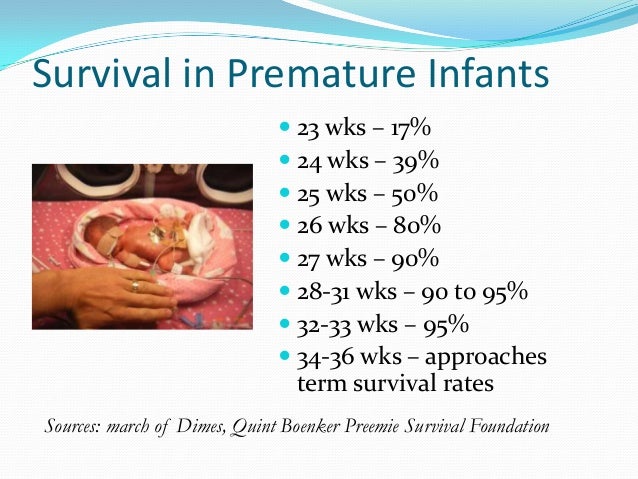 Hospital staff also can help you find parent support groups and other resources in your area that may be able to help you care for your baby.
Hospital staff also can help you find parent support groups and other resources in your area that may be able to help you care for your baby.
What kinds of health problems can premature babies have?
Health problems that may affect premature babies include:
Anemia. This is when a baby doesn’t have enough healthy red blood cells to carry oxygen to the rest of the body. Anemia can cause low levels of oxygen and glucose (sugar) in a baby’s blood and make it hard for a baby’s organs to work properly. Premature babies in the NICU may have anemia because they get regular blood tests to check their health. They often can’t make new blood cells quickly enough to replace the blood cells they lose during blood tests. This can lead to anemia.
Breathing problems. These include:
- Apnea of prematurity (also called AOP). This is a pause in breathing for 15 to 20 seconds or more. It may happen together with a slow heart rate called bradycardia.

- Bronchopulmonary dysplasia (also called BPD). This is a lung disease that can develop in premature babies as well as babies who have treatment with a breathing machine. Babies with BPD have a higher risk of lung infections than other babies and BPD sometimes leads to lung damage.
- Respiratory distress syndrome (also called RDS). If a baby has RDS, her lungs can’t make enough of a substance called surfactant. Surfactant is a slippery substance that keeps small air sacs in a baby's lungs from collapsing.
Infections or neonatal sepsis. Premature babies can get infections more easily than other babies because their immune systems aren’t fully developed. The immune system protects your body from infection. Infection in premature babies can lead to sepsis, when the body has an extreme response to infection. Sepsis can be life-threatening.
Intraventricular hemorrhage (also called IVH). This is bleeding in the fluid-filled spaces (also called ventricles) in the brain. The more premature a baby is, the more likely he is to have IVH.
This is bleeding in the fluid-filled spaces (also called ventricles) in the brain. The more premature a baby is, the more likely he is to have IVH.
Newborn jaundice. This is when your baby’s skin and the white parts of his eye look yellow. It’s caused by the build-up of a substance called bilirubin in your baby’s blood. Jaundice happens when a baby’s liver isn't fully developed or isn't working well.
Necrotizing enterocolitis (also called NEC). This is a common, but very serious problem that can affect a newborn baby’s intestines. Intestines are long tubes that are part of your digestive system. Your baby’s digestive system helps his body break down food, take in nutrients and remove waste. NEC happens when the tissue of the intestine is injured (damaged) or begins to die.
Patent ductus arteriosus (also called PDA). This is a heart condition that happens when a blood vessel called the ductus arteriosus doesn’t close properly.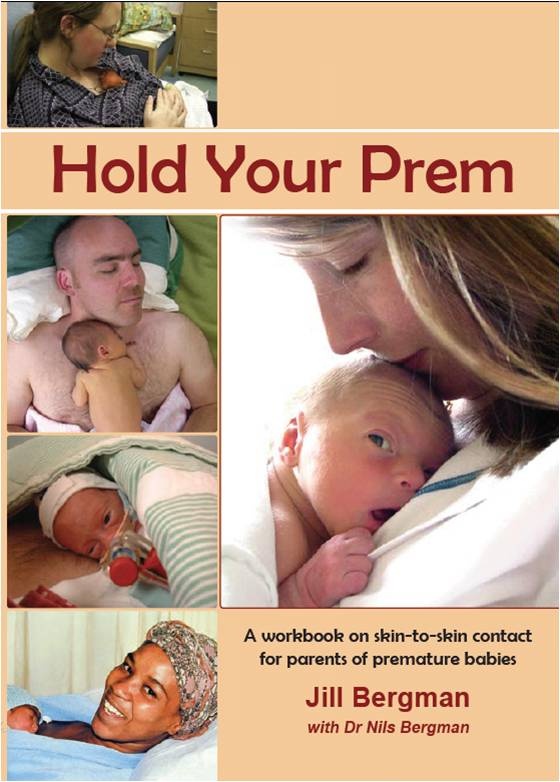 The ductus arteriosus helps blood go around a baby’s lungs before birth. Once a baby’s born and her lungs fill with air, the ductus arteriosis isn’t needed anymore and usually closes on its own a few days after birth. If it doesn’t close properly, too much blood may flow into the lungs. This can cause heart and breathing problems.
The ductus arteriosus helps blood go around a baby’s lungs before birth. Once a baby’s born and her lungs fill with air, the ductus arteriosis isn’t needed anymore and usually closes on its own a few days after birth. If it doesn’t close properly, too much blood may flow into the lungs. This can cause heart and breathing problems.
Retinopathy of prematurity (also called ROP). This is an eye disease that happens when a baby’s retina’s don’t fully develop in the weeks after birth. The retina is the nerve tissue that lines the back of the eye. ROP usually affects both eyes. Most babies with ROP have a mild case and don’t need treatment. But babies with severe ROP can have vision problems or blindness.
Last reviewed: October, 2019
Psychological support for parents whose child was born prematurely
All over the world November 17th is the International Day of Premature Babies. On the eve of the date, Tatyana Bezkopylnaya, a clinical psychologist, breastfeeding specialist at the Morozov Children's Hospital, told how parents can find strength in themselves and help their baby during this difficult, crystal-clear period.
Premature babies are those born between 22 and 36.6 weeks of gestation. According to world statistics, every 10th pregnancy ends in premature birth. In Russia, this figure is much lower - it is 5-6%.
How do parents feel if the meeting with the long-awaited baby happened much earlier than planned?
The very first and main fear that families face is the fear for the life and future health of the child. The stay of a child in intensive care increases parental anxiety. Inevitably, the feeling of maternal failure is added to the fears of losing the baby - the mother begins to blame herself for not being able to inform the child. Dads tend to be more rational and reserved. Some women are also able to cope with the situation on their own, but for many mothers, anxiety, fear, an indelible sense of guilt and the collapse of unfulfilled hopes are immersed in a state of frustration. This is a dangerous state in which a woman becomes isolated and withdraws from reality. For example, she can sit for hours and look at one point. She is in the so-called psychological hole: she is depressed and does not understand what to do, where to move on. Mom needs to be taken out of a depressed emotional state and encouraged to take action. A child needs a loving and strong parent.
For example, she can sit for hours and look at one point. She is in the so-called psychological hole: she is depressed and does not understand what to do, where to move on. Mom needs to be taken out of a depressed emotional state and encouraged to take action. A child needs a loving and strong parent.
How does the baby feel at this time?
During pregnancy, a close bond is established between baby and mother. The child feels her touch, smell, voice, warmth, taste of amniotic fluid, emotions experienced by the mother. If a deep intrauterine connection is suddenly cut off, the baby, so unprotected and vulnerable, begins to experience fear. He seeks to find the familiar sense of security that his mother gives him. The sooner it finds it, the more resources it will have for development and restoration. Being a mother next to the baby gives him the strength to fight for life. Parents are the best medicine. Therefore, it is so important not to despair, to believe in yourself, the baby, and together with the doctors to save the child.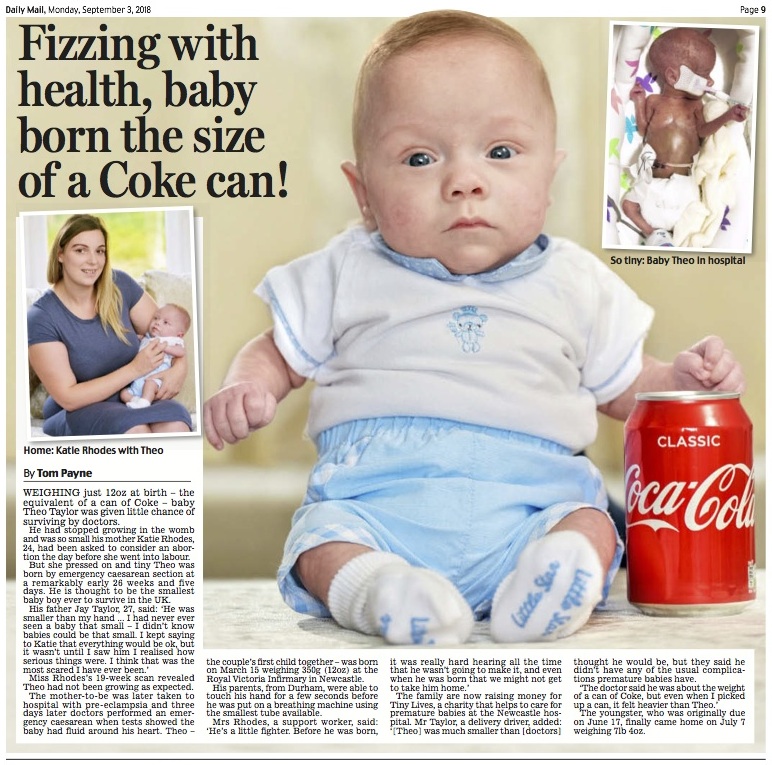
How can family members and loved ones support the mother of a premature baby?
A premature baby is a big job for the whole family. Family support is very important, but creating support is not about being an obsessive worry. Relatives need to be as correct as possible. If you don’t know how to support, just say: “I am next to you. You can count on me. When you need help, tell me." In addition, support should be non-judgmental, without blaming the woman. But in no case should the situation be devalued. The phrases “It's okay, it will grow up”, “It's okay, it will survive” are not allowed. If you want to support - show care, set your mother to positive. For example, say: "You are the best mother", "Everything will be fine, the baby will be healthy."
What will help mom gather her thoughts and start acting?
Simple rules will help mom to structure the day and start getting herself out of a depressed state.
First, you need to make a daily routine and try to stick to it. A woman should eat on time, rest, if there are no medical contraindications, perform simple gymnastic exercises. You can write the daily routine on a piece of paper or save it on your phone.
A woman should eat on time, rest, if there are no medical contraindications, perform simple gymnastic exercises. You can write the daily routine on a piece of paper or save it on your phone.
Second, it is important for a mother to focus on maintaining breastfeeding and stimulate lactation: express breast milk every three hours every day. If there are no medical contraindications, babies can receive a few drops of mother's milk already in intensive care. When the baby is transferred to the neonatology department, breastfeeding will continue. If the mother does not express, lactation will end.
Third, it is important to visit the child in the intensive care unit. Mom can stay here as long as her physical condition allows. We have mothers who spend the whole day with the baby - from 9 am to 8 pm. All conditions for mother's stay are created. Being with the baby, the mother can "kangaroo" him, that is, put him on his chest "skin to skin", stroke or simply put his hand on him.
Fourth, breathing practices have positively proven themselves as a way to stabilize the emotional state. As soon as the mother begins an emotional "storm", she needs to find a comfortable position, take a calm breath and slowly exhale, saying: "I breathe in calmness - I breathe out anxiety, I breathe in relaxation - I breathe out tension." Each time it is important to pronounce the emotions that a woman would like to acquire, and which she would like to get rid of.
Fifth, in the intensive care unit where the child is being treated, the mother can receive professional psychological support.
What is psychological support?
We help you find support, external and internal resources in order to overcome obstacles and move on. It all depends on the individual request of the mother. For example, we help to express and realize our own feelings, pronounce the emotions that fill a woman, apply techniques that allow her to see herself from the side, answer disturbing questions, and teach to capture the feelings of a child.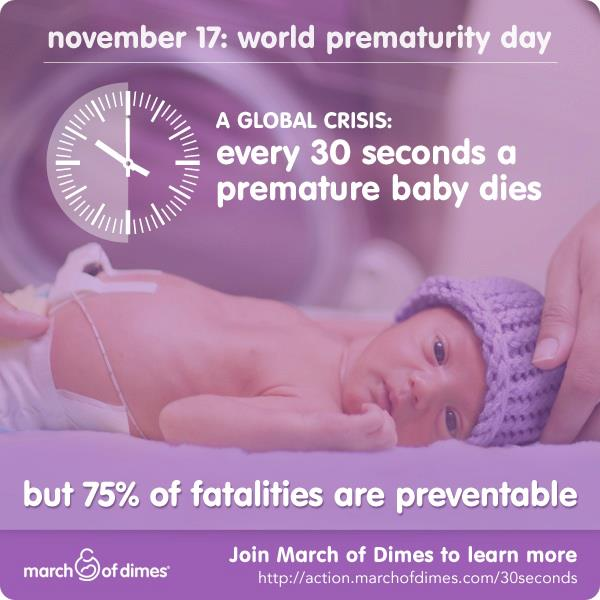
We conduct individual interviews with mothers. An individual consultation lasts about an hour, takes place 2-3 times a week. This is not tiresome for the parent and this time is enough to discuss and work through one issue.
We recently created a support group for mothers in one of the messengers. Participants are mothers whose babies are being treated in the neonatology department. After discharge, women also continue to communicate. It is important for mothers that they have the opportunity to exchange information, feelings and experiences with the reference group. In addition, I am always in touch with them and, if necessary, can quickly provide psychological assistance.
We plan to organize schools for mothers soon. These will be thematic group classes on psycho-emotional support for mothers, on caring for babies, and on organizing breastfeeding.
How can mothers see a psychologist?
In each ward of the neonatology department there is a leaflet with the necessary contacts.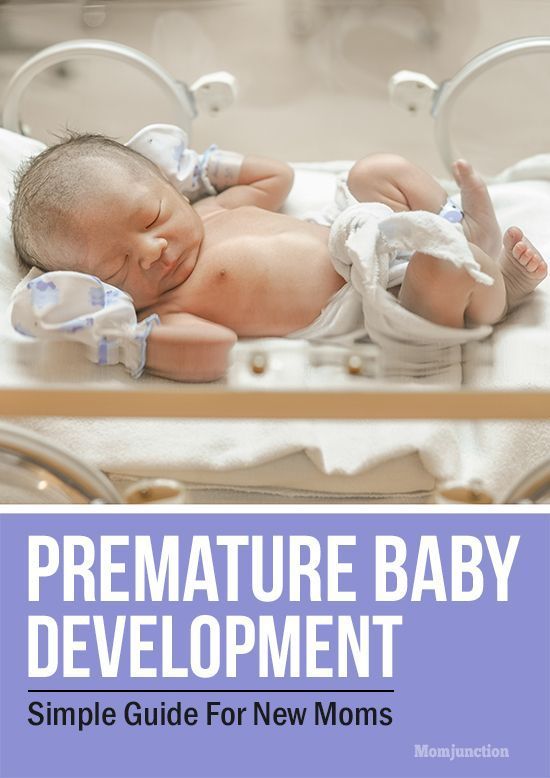 Mothers who are in other departments and need psychological support can tell their doctor about this. At the request of the doctor, an appointment will be made. Anxious mothers need to be heard. Active nonjudgmental listening is an excellent way of psychoprophylaxis.
Mothers who are in other departments and need psychological support can tell their doctor about this. At the request of the doctor, an appointment will be made. Anxious mothers need to be heard. Active nonjudgmental listening is an excellent way of psychoprophylaxis.
Features of adaptation and development of premature babies. Doctor Plus Medical Center
The first year of a child's life is characterized by the most intensive growth and rapid development. But during this period, the body is extremely vulnerable, the defenses are weak and imperfect. This is especially true for children who were born prematurely and are considered premature.
Premature are children born at gestational age from 28 to 37 completed weeks, weighing from 1000 - 2500 grams, height 35 - 45 cm.
The reasons for their premature birth are varied: too young age and, accordingly, the mother's body; hemolytic disease of the fetus, which develops as a result of Rhesus conflict; pathological (not normal) course of pregnancy; previous abortions, illness, physical and mental trauma; harmful working conditions, the use of nicotine and alcohol.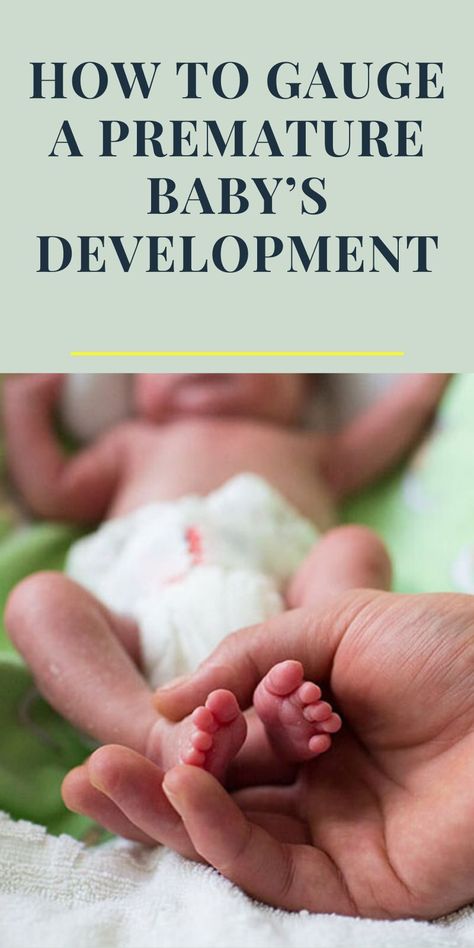
What a premature baby looks like. Anatomical and physiological signs.
There are 4 degrees of prematurity, depending on the weight of the child:
Grade 1: 2500 -2001 grams Grade 3: 1500 - 1001 grams
Grade 2: 2000 – 1500 grams Grade 4: 1000 grams or less.
Since body weight may or may not correspond to the gestational age at the time of birth, premature babies are divided into 2 groups also according to these signs
• children whose physical development corresponds to the gestational age at the time of birth;
In premature babies, the subcutaneous fat layer is not sufficiently developed, i.e. they suffer more from overheating and hypothermia. The skin is thin, dry, wrinkled, abundantly covered with fluff. Insufficient maturity of blood vessels is manifested by the Harlequin symptom. If you put the baby on its side, the skin acquires a contrasting pink color.
The bones of the skull are malleable, not only a large, but also a small fontanel is open.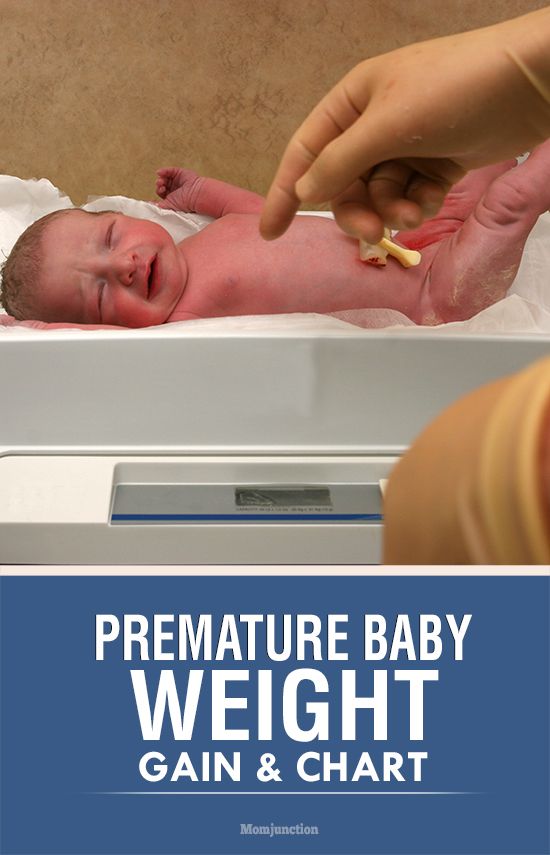
The auricles are soft - the cartilage in them has not yet formed, they are pressed to the head, and not separated from it, as in full-term ones.
The nails do not reach the edge of the phalanges of the fingers, the umbilical cord is located below the middle of the body, and not in the center.
The underdevelopment of the genital organs is indicative: in girls, the labia minora are not covered by the large ones. In boys, the testicles are not descended into the scrotum.
The child sucks badly, swallows with difficulty. The cry is weak, breathing is not rhythmic. Physiological jaundice is often delayed up to 3-4 weeks.
The umbilical cord falls off much later, and the umbilical wound heals more slowly.
It has its own characteristics and physiological weight loss. It is restored only by 2-3 weeks of life, and the timing of weight recovery is directly dependent on the maturity of the child, i.e. not only the date of his birth, but also the degree of adaptation of the baby to environmental conditions.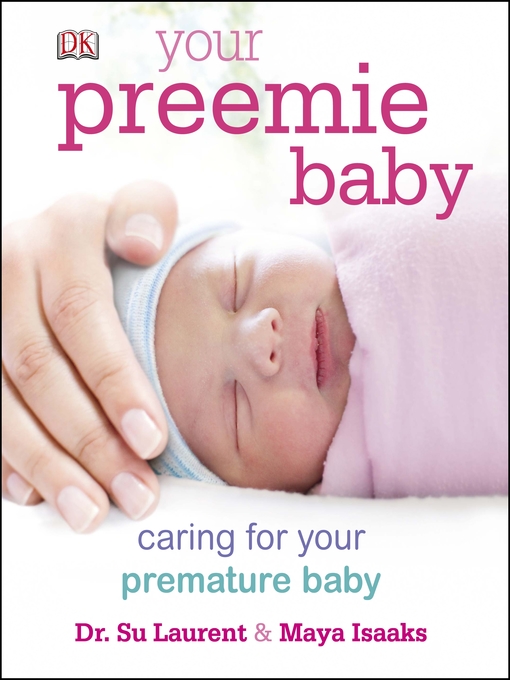
In premature babies, the nerve centers that regulate the rhythm of breathing are not fully formed. The formation of lung tissue has not been completed, in particular, a substance that prevents the “falling off” of the lungs - Surfactant. Therefore, their respiratory rate is not constant. With anxiety, it reaches 60-80 in 1 minute, at rest and during sleep it becomes less frequent, respiratory arrests may even be observed. The expansion of the lungs due to an insufficient amount of Surfactant is slowed down, and respiratory failure may occur.
The heart rate also depends on the condition of the child and environmental conditions. With an increase in the ambient temperature and the child's anxiety, the heart rate increases to 200 beats per minute.
In premature newborns, asphyxia and cerebral hemorrhage occur more often. They are more likely to suffer from acute respiratory diseases, intestinal infections, which is due to weak immunity and insufficient development of many adaptive reactions.
These babies are more likely than full-term babies to develop anemia (anemia).
Especially during the period when intensive growth and weight gain begins (2-3 months). With proper nutrition of the child and the mother, if she breastfeeds, these phenomena quickly pass. In the case when anemia is of a protracted nature, it is necessary to prescribe iron preparations.
The further development of the child is determined not only by the degree of prematurity, but also in many respects, by the state of his health for a given period of time.
If the child is practically healthy, from the 2nd month of life, he gains weight and height in the same way as full-term ones. By the end of the 1st year, the weight increases by 5-10 times compared to the weight at birth.
The average height is 70-77 cm.
The nervous system of premature babies is also more immature. The development of various skills, their intellectual development lags behind by 1-2 months.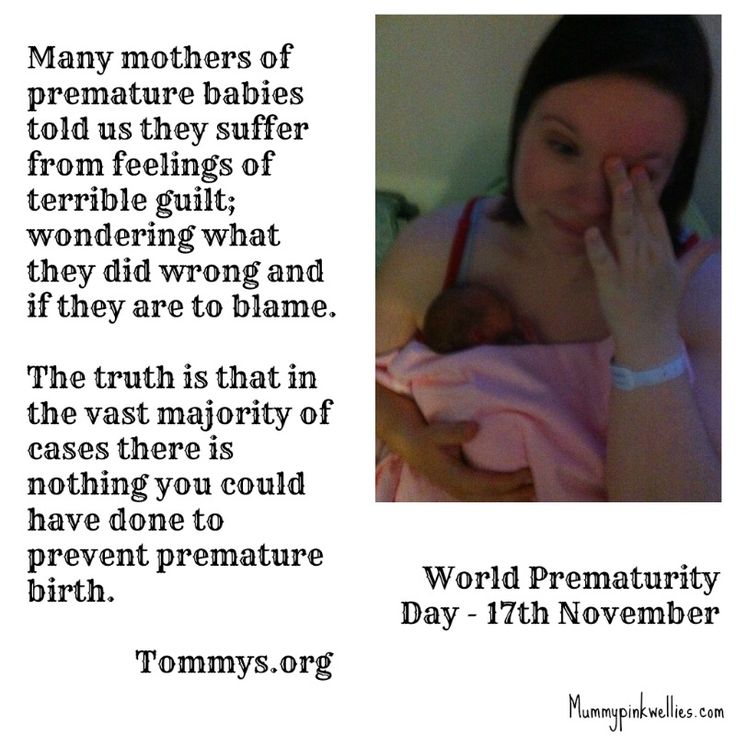
These children sit down later, start walking later, they may have anomalies in the structure of the foot, curvature of the legs, and spine. If children are born very premature and often get sick, their development slows down by about a year. In the future, it levels off, approximately to preschool age.
If you have suffered intrauterine malnutrition, i.e. the nutrition of the fetus was disturbed for some reason - diseases of the mother, anomalies in the development of the child itself, anomalies in the development of the umbilical cord and placenta, then its central nervous system can recover for a long time (therefore, the observation of a neurologist is very important).
There may be lability of the nervous system (mood changes easily, often gives in to emotions, conflicts with other people are not uncommon), night terrors, enuresis (urinary incontinence), lack of appetite, a tendency to nausea.
However, in general, premature babies grow up as quite normal people.
Caring for a premature baby after discharge from the maternity hospital.
For a child born prematurely, dispensary observation is established at the place of residence up to 7 years.
Periodic consultations of specialists are obligatory, first of all - a neurologist, as well as a surgeon, an otolaryngologist, an ophthalmologist
From the age of 2-4 weeks, rickets is prevented (ultraviolet
irradiation - quartzization, the addition of vitamin D to food, massage, hardening).
The most adequate type of nutrition for a premature baby is breastfeeding. But given that the baby can suck out an insufficient amount of breast milk, you can supplement it with expressed milk or adapted mixtures.
From 4 months - vegetable purees, 5 months. - porridge, 6 months. - give meat soufflé.
Correction of protein and fat deficiency is carried out by adding the required amount of kefir and cottage cheese, starting with 5 ml, gradually increasing the dosage.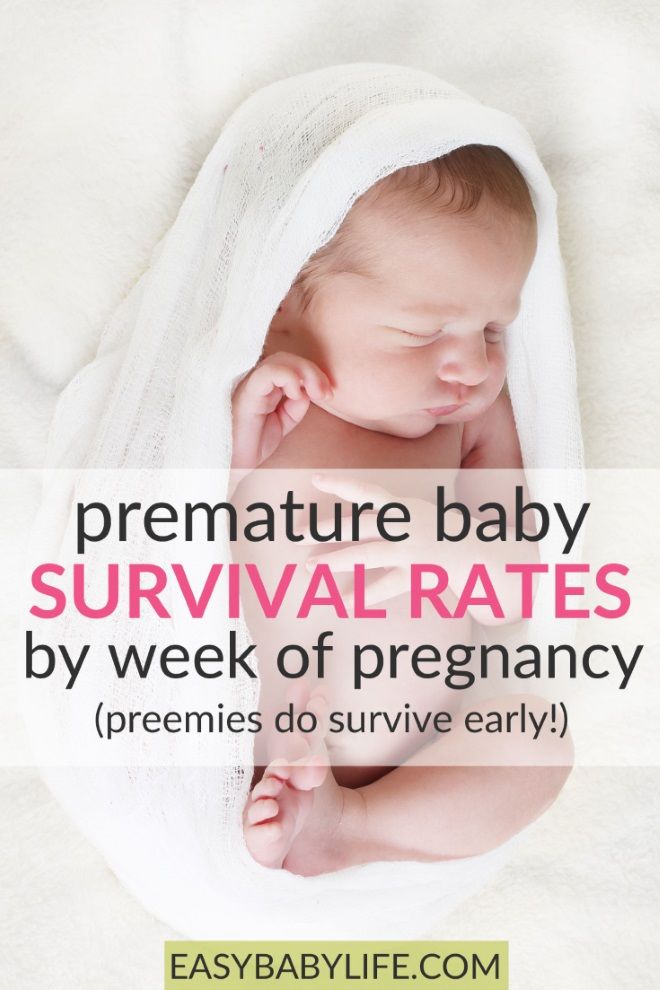
The room in which a premature baby lives should be bright, dry and thoroughly ventilated. The optimum room temperature is 20-22 *. S. Walks are very important. Sufficient exposure to fresh air prevents the development of pathological conditions.
In winter, walks start from the age of 2 months at an air temperature not lower than -8, -10*C. The duration of the walk is from 15 minutes to 2 hours. In summer, a child can spend all the intervals between feedings during the day in the fresh air. On windy, rainy and very hot days (more than 30*C), it is better for children to sleep indoors with windows open or on the veranda.
Daily warm baths are helpful. When bathing premature babies, the water temperature should be at least 37*C.
Vaccination of premature babies is carried out strictly according to an individual schedule, it depends on the state of health, physical and neuropsychic development of the child.
When organizing care for a child born prematurely, one should take into account the functional characteristics of the body.

